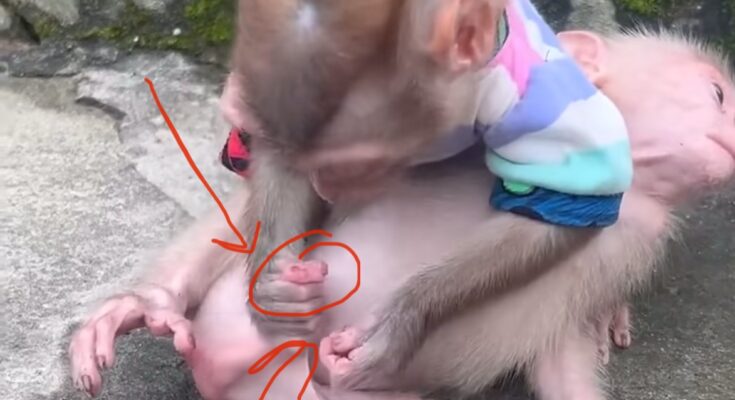Proper nutrition is critical for the healthy growth and development of baby monkeys, just like human infants. In the wild or in captivity, a baby monkey that does not receive a balanced diet can suffer from a range of physical and behavioral issues. Recognizing the signs of nutrient deficiency early can make the difference between life and death. Here are some common symptoms that indicate a baby monkey may be lacking essential nutrients.
1. Stunted Growth
One of the earliest and most noticeable symptoms is stunted physical development. A malnourished baby monkey will grow slower than its peers, appearing smaller in size and weight for its age. Poor bone development may also result in a frail skeletal structure, especially if the diet lacks calcium or vitamin D.
2. Weak Muscle Tone and Lethargy
Protein and energy deficiencies can lead to weak muscle tone and fatigue. A healthy baby monkey is typically active, curious, and playful. When lacking nutrients, they may appear unusually tired, sleep excessively, or lack the energy to engage with their environment. This lethargy can be mistaken for illness, but it is often rooted in poor nutrition.
3. Digestive Problems
Malnourished baby monkeys often suffer from digestive issues such as chronic diarrhea, constipation, or bloating. These symptoms can stem from a lack of fiber, essential fatty acids, or digestive enzymes. Diarrhea, in particular, is dangerous as it can rapidly lead to dehydration and further nutrient loss.
4. Skin and Coat Issues
A nutrient-deficient diet can impact skin health. Baby monkeys may develop dry, flaky, or itchy skin. Their fur might appear dull, patchy, or begin to fall out. These signs are often linked to a lack of vitamins A, E, and essential fatty acids which are vital for healthy skin and coat maintenance.
5. Poor Immune Function
Nutrition directly affects the immune system. A baby monkey not receiving enough vitamins and minerals may be more susceptible to infections. Frequent colds, respiratory problems, or slow wound healing can indicate that their body is struggling to defend itself due to a weak immune system.
6. Behavioral Changes
Deficiencies in essential nutrients, particularly B vitamins, can impact neurological development. This can lead to unusual behavior such as anxiety, aggression, or social withdrawal. These behavioral signs may be subtle at first but can worsen if the underlying nutritional issue isn’t addressed.
7. Delayed Milestones
Just as with human children, baby monkeys reach certain developmental milestones at specific ages—such as learning to climb, socialize, or eat solid food. If a baby monkey is delayed in these areas, it may be due to inadequate nutrition affecting cognitive or physical development.
Conclusion
Monitoring the health and development of baby monkeys is essential, whether in a sanctuary, zoo, or research environment. If any of the symptoms above are observed, it is critical to consult a wildlife veterinarian or primate nutritionist immediately. Early intervention with a balanced diet tailored to the monkey’s species and age can often reverse the effects of nutrient deficiency and help ensure a healthy future.



